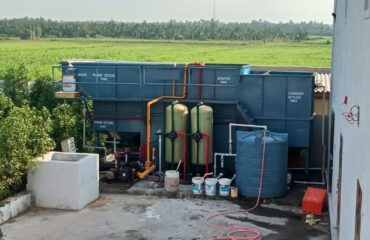Introduction
Thane, a vibrant city in Maharashtra, has witnessed rapid urbanization and population growth in recent years. With urban development comes the challenge of managing wastewater effectively to protect public health and the environment. In this article, we’ll explore the sewage treatment plants (STPs) in Thane, their role in sustainable development, challenges faced, and innovative solutions.
Importance of Sewage Treatment in Thane
As a bustling urban center, Thane generates a significant amount of wastewater from residential, commercial, and industrial activities. This wastewater contains contaminants like organic matter, nutrients, and pathogens, which can pollute water bodies and harm ecosystems if not treated properly. Efficient sewage treatment is crucial to safeguard water quality, prevent waterborne diseases, and promote sustainable growth in Thane.
Key Sewage Treatment Plants in Thane
Thane’s sewage treatment infrastructure is managed by the Thane Municipal Corporation (TMC). Some of the notable STPs in Thane include:
- Kapurbawdi STP: Located in Kapurbawdi, this STP has a capacity to treat X MLD (million liters per day) of sewage. It employs biological treatment processes such as activated sludge and anaerobic digestion to remove pollutants and generate biogas for energy recovery.
- Kalwa STP: Situated in Kalwa, this plant treats Y MLD of wastewater using advanced treatment methods like sequential batch reactors (SBRs) and membrane filtration for superior effluent quality.
- Kopri STP: Serving the Kopri area, this STP utilizes innovative technologies such as ultraviolet (UV) disinfection and ozonation for disinfection and odor control, ensuring compliance with regulatory standards.
Challenges and Innovations
Thane faces various challenges in sewage treatment and wastewater management:
- Population Growth Pressure: The rapid increase in population puts pressure on existing STPs, necessitating upgrades and expansion to meet demand.
- Industrial Effluents: Effluents from industrial sources require specialized treatment due to their complex composition and potential environmental impact.
- Stormwater Management: During monsoon seasons, stormwater runoff can overwhelm sewage systems, leading to overflows and environmental pollution.
To tackle these challenges, TMC and other stakeholders are implementing innovative solutions:
- Green Infrastructure: Incorporation of green infrastructure elements such as constructed wetlands and rain gardens to manage stormwater, improve water quality, and enhance urban biodiversity.
- Resource Recovery: Utilization of biogas generated from sewage treatment processes for energy production, reducing dependence on fossil fuels and promoting sustainability.
- Smart Monitoring Systems: Deployment of smart monitoring and control systems to optimize STP operations, detect anomalies, and ensure efficient resource utilization.
Towards Environmental Resilience
Efficient sewage treatment in Thane is integral to building environmental resilience and fostering sustainable development. By investing in modern treatment technologies, embracing innovation, and promoting community awareness, Thane aims to create a cleaner, healthier, and more resilient urban environment for its residents.
In conclusion, sewage treatment plants in Thane play a vital role in protecting public health, preserving water resources, and promoting sustainable urban growth. Continued efforts in infrastructure development, technology adoption, and collaborative partnerships will contribute to a greener and more livable Thane for generations to come.





